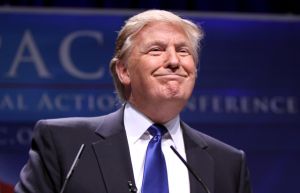Despite the rising tensions between the United States and China, US Defense Secretary Lloyd Austin and his Chinese counterpart, Li Shangfu, shook hands at a dinner in Singapore, underscoring Washington's commitment to preserving ties with Beijing.
Pentagon Press Secretary Brig. Gen. Patrick Ryder said that while there were no crucial conversations during the handshake, keeping channels of military-to-military contact open with China was essential, Politico reported.
Since China initially declined a US offer for a formal meeting at Singapore's yearly military and security summit, the encounter between Austin and Li was a surprise.
Over the following days, the Shangri-La security conference will bring together defense ministers, legislators, top military officials, diplomats, producers of weapons, and international security experts from different areas.
The invasion of Ukraine by Russia, China's backing of Russia, and China's increasingly hostile acts against Taiwan all serve as tension-producing factors for the meeting, as per VOA.
Read also: DOJ: No Charges for Mike Pence
A Complicated Relationship
The tensions between the two superpowers involve several fronts, including disagreements over Taiwan, China's record on human rights, and its military operations in the South China Sea, per Reuters.
After discovering a Chinese surveillance balloon in American airspace, which caused US Secretary of State Antony Blinken's trip to China to be postponed, efforts to address the tensions between the United States and China were made. Blinken, however, recently announced intentions to delay his trip to China. Furthermore, recent high-level trade negotiations between the two nations have taken place.
To compete with China on renewable energy and other vital problems, US lawmakers have argued for bolstering local manufacturing skills, notably in industries like computer chips. Lawmakers also have frequently voiced these worries about China's danger to national security.
Despite the difficult situation, US military leaders have repeatedly highlighted the need to keep lines of communication open with their Chinese counterparts to avert possible crises or deal with unanticipated events.
Related Article: US Starts Training Ukrainian Forces on Advanced Abrams Tanks
© 2025 HNGN, All rights reserved. Do not reproduce without permission.








